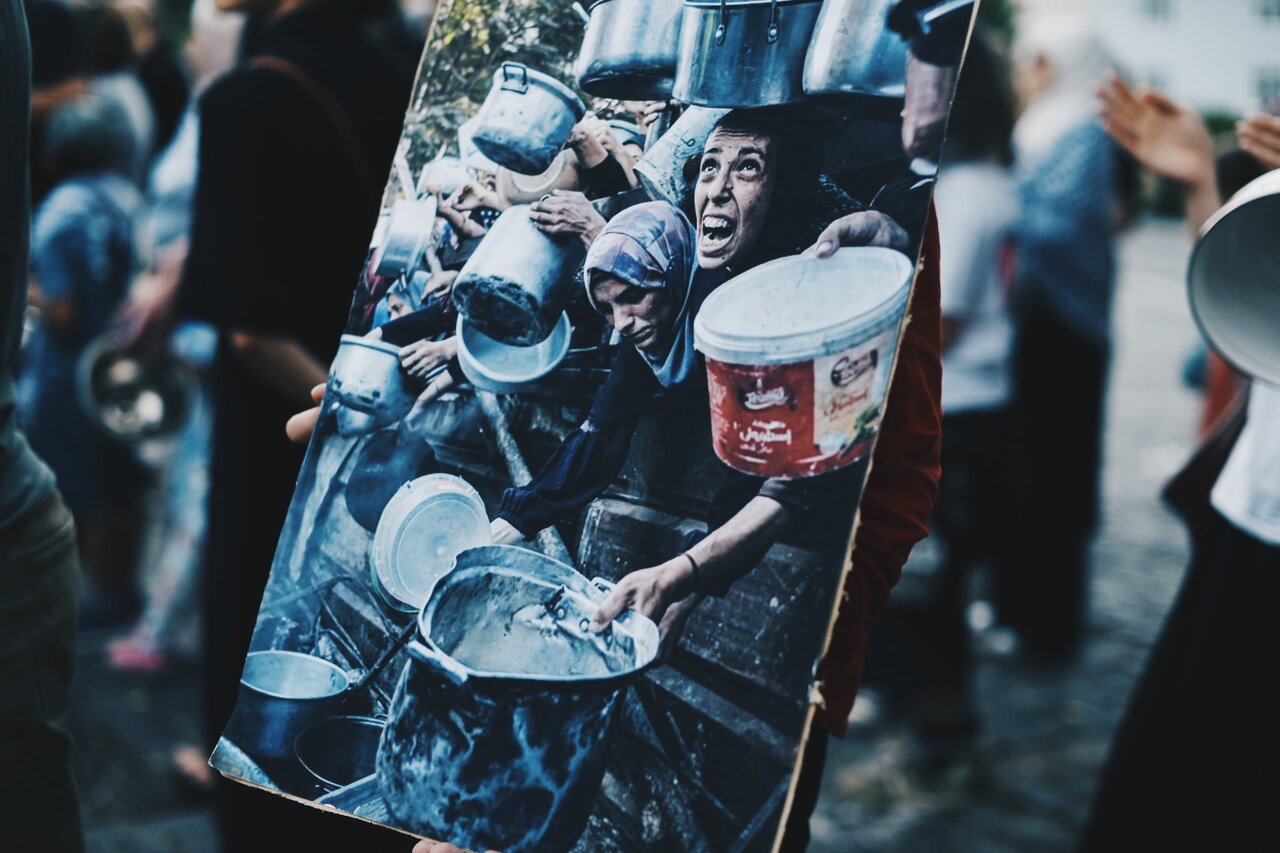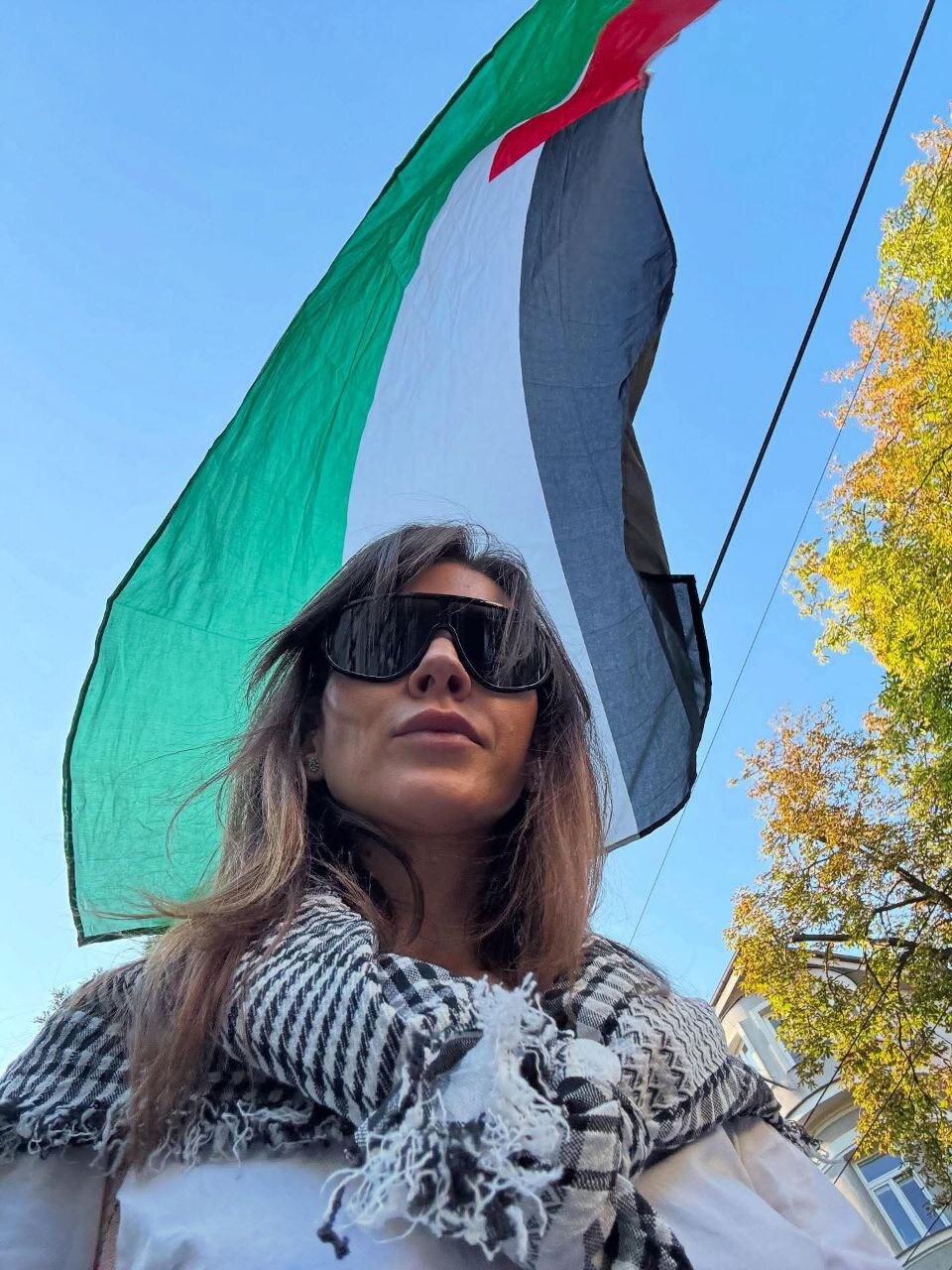Voices of the voiceless: Slovaks call for justice against Israel's starvation and atrocities in Gaza

TEHRAN — Amid escalating violence and a deepening humanitarian crisis in Gaza, the world watches as over 61,000 Palestinians have been killed and 152,000 wounded since Israel launched its devastating military campaign in October 2023.
With the ongoing Israeli blockade causing severe starvation—resulting in the tragic deaths of approximately 200 Palestinians from hunger alone—the conflict has ignited a wave of global outrage.
Yet, many Western governments remain silent or complicit, failing to take meaningful action to halt what UN experts and rights groups describe as ethnic cleansing and genocide.
In Slovakia, public dissent has grown increasingly visible. On Thursday, the capital Bratislava witnessed the powerful “March of Empty Pots,” a protest aimed at drawing international attention to the deliberate starvation imposed on Gaza by Israel.
Among the demonstrators was Lucia Hubinska, a university lecturer, activist, commentator, and publicist, who spoke candidly about the protest and the political climate in Slovakia, as well as the broader implications of Western complicity in the Gaza crisis in an Interview with the Tehran Times. She sheds light on the growing solidarity movement, the stark failures of political leadership, and the moral imperatives that demand action.
This is an excerpt from the interview:
Could you share details about the protest location and the route of the march?
The protest was held in Bratislava. It started in front of the National Parliament, then we marched to the House of the European Commission, followed by the Presidential Palace, and finally through the Old Town.
Can you explain the purpose behind organizing The March of Empty Pots protest and what message you hoped to convey?
The protest was called The March of Empty Pots — a stark and haunting image that speaks not only to the famine engulfing Gaza but also to the hunger and human suffering in Yemen, Sudan, and beyond. Each empty pot carried through the streets was a reminder that famine is never an accident — it is the product of political choices, blockades, and war.
We are painfully aware of what is unfolding in Gaza: ethnic cleansing, genocide, and deliberate starvation used as a weapon against an entire population. How can we, in good conscience, allow this to happen before our eyes? Yet our government has not once condemned Israel’s actions. Instead, they continue to shake hands with Israeli leaders, sign trade deals, and even sell them arms. This is not neutrality but complicity, and it makes us part of the machinery enabling these crimes. We say: not in our name.
How have protests in Slovakia reflected public response to the recent conflict in Gaza?
This was not the first protest — in fact, it was the third March of Empty Pots in just the past three weeks. Earlier in January, there was also a demonstration in Bratislava, along with several others before that in solidarity with Gaza. More recently, the group Unified for Peace organized a march opposing the EU's plan to increase military spending to 5% of GDP — a move that stands in stark contrast to urgent social needs at home and humanitarian crises abroad.
Awareness of these issues is slowly growing, but in my view, we are still far from exerting the kind of pressure needed to compel our government to act. Empty Pots alone will not change policy — they must be accompanied by sustained public mobilization. We need more protests, more grassroots initiatives, more solidarity, and yes, more righteous public anger.
Has the Slovak government condemned Israel’s actions in Gaza or taken any measures regarding the conflict? Additionally, how do politicians perceive the situation in Gaza?"
Unfortunately, “no”. The politicians and government have not expressed any condemnation. On the contrary, it is staggering that, in the face of one of the worst atrocities unfolding today, there are still those who deny the undeniable ongoing genocide and deliberate starvation in Gaza. Among them are politicians, religious leaders, commentators, and academics who, instead of acknowledging well-documented crimes, flood the public sphere with grotesque falsehoods.

The Slovak activist: Our politicians shake hands with Israeli leaders, sign trade deals, and even sell them arms. We say: not in our name. (Photo by Tereza Vančov)
Some claim, for example, that the now-iconic photograph of a starving child in his mother’s arms was a “hoax,” repeating Israeli propaganda that the boy’s condition was due to a genetic illness and that Israel compassionately sent him to Italy for treatment. In reality, Israel obstructed his evacuation; only the efforts of doctors, volunteers, and independent journalists got him out. Four-year-old Osama al-Raqab weighed just nine kilos — a skeletal shadow of a once-healthy child — the result of months without food or medicine.
Others push the equally obscene claim that Gaza’s famine is nothing but “Hamas propaganda” — lies sometimes echoed even by religious institutions, which have gone so far as to publicly endorse Israeli military actions. When faith-based organizations blur the line between promoting religion and promoting the politics of a state engaged in apartheid and war crimes, they damage themselves and fuel prejudice.
The playbook is always the same: anyone who points to famine or genocide — from the UN, UNICEF, and the Red Cross to Médecins Sans Frontières and even Israel’s own leading human rights groups — is smeared as a “Hamas supporter.” Meanwhile, famine deepens, entire neighborhoods are reduced to rubble, and children are shot in the head or chest with impunity.
Some European governments are beginning to act: Slovenia and the Netherlands have sanctioned Israeli ministers, and Slovenia has banned all arms trade with Israel. In countries like Slovakia, however, leaders block even symbolic measures, clinging to silence and complicity.
Religious justifications are especially dangerous. Modern Israel is not the “biblical promise” but a political project built on occupation, apartheid, and bloodshed. No scripture commands the slaughter of children or the starvation of entire communities. If we close our eyes to this, how can we claim to act in the name of faith? This is nothing but fanaticism.
Israel’s security cabinet has approved a plan to take control of Gaza City and extend “security control” over the Palestinian territory. What are the beliefs among leaders in Slovakia about Prime Minister Benjamin Netanyahu’s warmongering in Gaza?
Netanyahu’s push to occupy Gaza is not about security – it’s about controlling the crime scene. Zionist authorities are intent on erasing evidence because they know that if the world’s eyes gain full and unrestricted access, Gaza will be revealed as a vast landscape of atrocities—a truth that would irreparably damage Israel’s moral standing.

Lucia Hubinska: National courage is not measured in size. I believe even as a small country we can take on big challenges
Western governments support this agenda not simply out of complicity but as active collaborators in every crime committed. Losing control of Gaza would not only expose Israel but could also deal a fatal blow to Western imperial dominance.
Here in Slovakia, our leaders echo the sentiment that, as a small country, we cannot meaningfully challenge the Western order. Membership in the EU and NATO is presented as a constraint that leaves little room for true independence. Yet there is a deep public desire for genuine sovereignty—even neutrality. Experience shows, however, that within our current alliances, such aspirations are difficult to realize.
But national courage is not measured by size. Slovenia, a nation half our size, has demonstrated the political will to take bold, principled action on the global stage. This is not about capacity—it is about resolve. Perhaps it is time to break free from the assumptions that have constrained us for too long and use this moment to redefine our position in the world based on our own interests, values, and moral responsibilities.
Leave a Comment